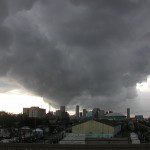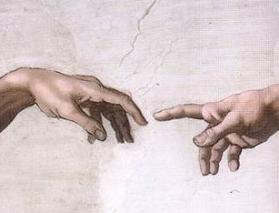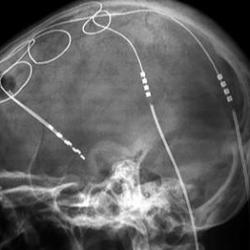Jesus claimed that the Sabbath was made for people, not people for the Sabbath (Mark 2:27). Certain religious leaders were all worked up because Jesus’ disciples were collecting food to eat on the Sabbath (See Mark 2:23-28). Jesus explained to them that the whole point of Sabbath rest is to rejuvenate people, not enslave them. In this situation, his disciples needed to pluck heads of grain and eat to satisfy their hunger if they were to experience renewal.
Like the Sabbath, which signifies rest from work, God made work for people, not people for work. While work is core to our identity, it does not exhaust it. We should aim to cultivate community in all of our business transactions and vocational pursuits, not reduce community to commodifying transactions.
Matthew 12:1-8 also recounts Jesus’ disciples plucking heads of grain in the field to eat on the Sabbath because they were hungry. The account that immediately follows it in Matthew’s Gospel depicts Jesus healing a man on the Sabbath (Matthew 12:9-14). Both his disciples and Jesus worked on the day of rest. Why? Both activities were for the sake of restoring human life.
Just as rest is for restoration, so, too, work is for restoration; neither rest nor work is an end in itself. Their aim is bound up with the creation mandate to cultivate people in community in the presence of God. Paul Tillich speaks of the moral mandate of humanity: “The moral imperative is the command to become what one potentially is, a person within a community of persons.”[1]
As Lord of creation and Sabbath rest (See Matthew 12:8), Jesus gives us the mandate to cultivate personhood in the community of creation. God does not envy us or begrudge us our existence of work and rest. Rather, he makes it possible for us to do both to the full within the liberating relational limits of his creaturely designs. In one of my favorite passages in the Church Dogmatics, Karl Barth reflected on the subject in this manner:
“Man goeth forth unto his work and to his labour until the evening” (Ps. 104:23); to which it belongs that he can use his senses and understanding to perceive that two and two make four, and to write poetry, and to think, and to make music, and to eat and drink and to be filled with joy and often with sorrow, and to love and sometimes to hate, and to be young and to grow old, and all within his own experience and activity, affirming it not as half a man but as a whole man, with head uplifted, and the heart free and the conscience at rest: “O Lord, how manifold are thy works” (Ps. 104:24). It is only the heathen gods who envy man. The true God, who is unconditionally the Lord, allows him to be the thing for which He created him.[2]
God provides us with work and rest to make each of us a whole person, not half of one. So, what gets in the way of us living to the full? Working and resting in isolation, where they become ends in themselves rather than means to the end of cultivating community, makes each of us half a person. I constantly need to keep in mind that work and rest were made for building community, not using communities for platforms for restless work and aimless leisure. While I should not be a Sunday Christian, Sunday—the Lord’ s day—reminds us to order our lives in work and in rest in view of the Creator and the liberating limits he makes possible for building community. And so, I need to bring Sunday with me every day of the week.
This discussion on pursuing work and rest for the sake of cultivating community and not as ends in themselves reminds me of the lead character in the television series Mad Men {SPOILER ALERT FOR FINAL SERIES OF MAD MEN}. I finished watching the final series last night. In one of the closing episodes, the self-made man Don Draper confessed to a colleague that he worries about the fact that he never did anything and that he didn’t have anyone. Many around him viewed Don as a full man given his astonishing level of success and striking good looks. Don had climbed the business and social ladder and had become a partner in a major New York advertising agency through creativity and ingenuity. He had also rested with countless beautiful women. But he was only half a person. All too often he had reduced life to commodifying transactions involving money and sex. Major business upheavals and two ruined marriages later, Don came to terms with the fact that his life did not amount to much. He had lived to work and rest in isolation rather than for communion.
How are you and I operating today? Do we live within the liberating limits of creation to become persons in communities of people? Work and rest can help us cultivate personhood and relational communities, but may they never replace them.
[1]Paul Tillich, Morality and Beyond, with a foreword by William Schweiker (Louisville, KY: Westminster John Knox Press, 1963), p. 19; cf. page 20. See also Paul Tillich, Systematic Theology, Vol III, (Chicago: The University of Chicago Press, 1963), pp. 44-46.
[2]Karl Barth, Church Dogmatics, vol. III/3, The Doctrine of Creation, ed. G. W. Bromiley and T. F. Torrance (Edinburgh: T. & T. Clark, 1960), p. 87.
















